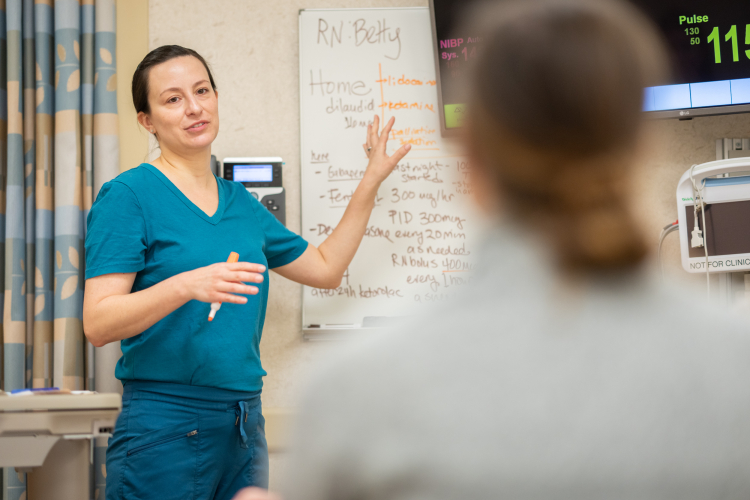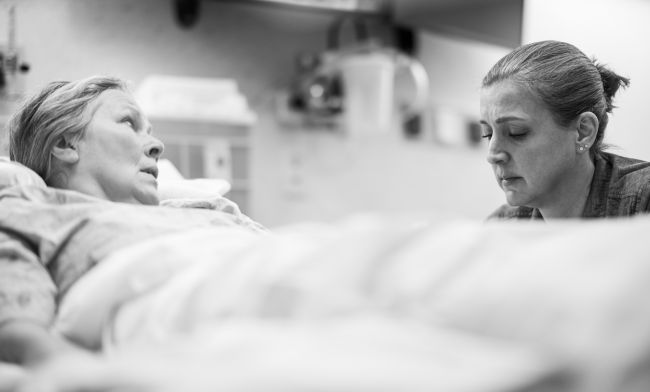Realistic, high-acuity simulations define Hospice and Palliative Medicine fellowship

When she set out to develop the curriculum of the UW Department of Medicine’s Hospice and Palliative Medicine (HPM) fellowship, program director Sara Johnson, MD, associate professor, Hematology, Medical Oncology and Palliative Care, knew it was essential to include comprehensive simulation-based training.
“In this complex, high-emotion field,” explains Dr. Johnson, “it’s not always easy to provide deliberate skills practice and effective feedback in the traditional apprenticeship model of medical education. Simulations provide deliberate practice in challenging tasks, high-level feedback, standardization of exposure to clinical scenarios, and a low-stakes environment in which mistakes are safe.”
The one-year HPM fellowship includes three simulations of high-acuity scenarios. The simulations take place at the UW Health Clinical Simulation Program and are taught by an interprofessional team of educators, using professional actors to simulate patients and their families.
At the start of the year, fellows encounter two relatively common scenarios—a cancer pain crisis and an emergency room case. They must draw upon their medical knowledge and communication skills to identify appropriate pain management, address their patient’s emotional state, and coordinate effectively with nursing staff.
The final simulations of the year are intimate and high stakes. Set in the closing days and hours of a patient’s life, they introduce spiritual distress and the need for compassionate withdrawal of non-invasive respiratory support. Fellows are taught to collaborate with the nurse and chaplain in attendance when necessary.
“The interprofessional team makes a big difference,” Dr. Johnson says. “This work is a team sport and working well with your team is part of what we want our fellows to practice, especially in high-stress situations.”
Immediate debrief sessions after each case provide space for educators and fellows to collaborate on future learning goals.
“Every time is anxiety-inducing, but it’s a completely safe space and you learn so much from it,” says fellow Lisa Peng, DO. “You can really see your own growth in confidence and skill level.”

“The simulations were one of the reasons I chose this program,” says fellow Elizabeth Sullivan, MD. “It was the best decision I ever made, to come to UW and do this fellowship.
For her part, Dr. Johnson hopes that the comprehensive simulation model she has developed at UW can be used by palliative care educators at other institutions.
“My ultimate goal is to ensure all HPM fellows have competency in essential palliative care skills by developing national standards in training that align with ACGME competency-based tools,” she says. “After all, high-quality education leads to high-quality patient care. We cannot stop death, but we can help those nearing it.”
Banner: Fellowship program director Sara Johnson in the UW Health simulation center. Credit: Clint Thayer/Department of Medicine.